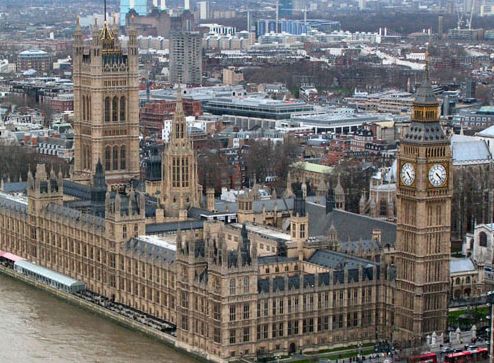UK Government To Demand Data On Every Call And Email

Plans could force ISPs and phone operators to hand over records on all phone calls, emails, Tweets and Facebook messages
ISPs and landline and mobile phone operators could be forced to store records of calls, texts, emails and visited websites under a new government scheme designed to combat terrorism.
The government has begun negotiations with the companies involved and the new Communications Capabilities Development Programme (CCDP) could be announced as early as May, according to reports.
Freedom of access to speech
 The databases would not record the content of the customer’s communications but would store the numbers and email addresses of the sender and the recipient and, for the first time, security services will have access to Facebook communications. Direct Messages between Twitter users will also be monitored, as well as users of online gaming services.
The databases would not record the content of the customer’s communications but would store the numbers and email addresses of the sender and the recipient and, for the first time, security services will have access to Facebook communications. Direct Messages between Twitter users will also be monitored, as well as users of online gaming services.
ISPs and phone operators will have to store the data for one year and make it available to security services, such as MI5, MI6 and GCHQ, who have been lobbying for the scheme.
If the CCDP were to be implemented, authorities would be granted ‘real-time’ access to suspects’ communications and would also be able to reconstruct their movements as records would be able to show within yards where a call or text was made, while internet browsing histories could be matched to IP addresses.
The scheme is based on a Labour plan which was scrapped due to a lack of support and security fears. Its plans made provision for a centralised database, although this was dropped due to cost.
The project appears to have been resurrected over fears of a terrorist attack at this summer’s Olympic Games in London and security services’ inability to track terrorist’s communication over the internet. The government has already pledged ‘unprecedented levels’ of cyber security for the event.
Privacy concerns
Not surprisingly, the prospect of the CCDP has raised concerns over a loss of privacy but also about the security of the stored records. If they fell into the wrong hands, these could be used by hackers to launch spam email and text campaigns, while details of visited websites could also be used for commercial gain.
records. If they fell into the wrong hands, these could be used by hackers to launch spam email and text campaigns, while details of visited websites could also be used for commercial gain.
“Labour’s online surveillance plans have hardly changed but have been rebranded. They are just as intrusive and offensive,” commented Jim Killock, executive director of the Open Rights Group. “The plans are a huge waste of time and money, as well as being a huge intrusion on our civil liberties. Online government surveillance is the last thing we need right now.”
The Open Rights Group has also launched a petition, addressed to Prime Minister David Cameron, his deputy Nick Clegg and home secretary Theresa May, which allows the public to voice opposition to the scheme.
“I do not want the government to try to intercept every UK email, Facebook account and online communication,” it read. “It would be pointless – as it will be easy for criminals to encrypt and evade – and expensive. It would also be illegal: mass surveillance would be a breach of our fundamental right to privacy. Please cancel the Communications Capabilities Development Plan.”